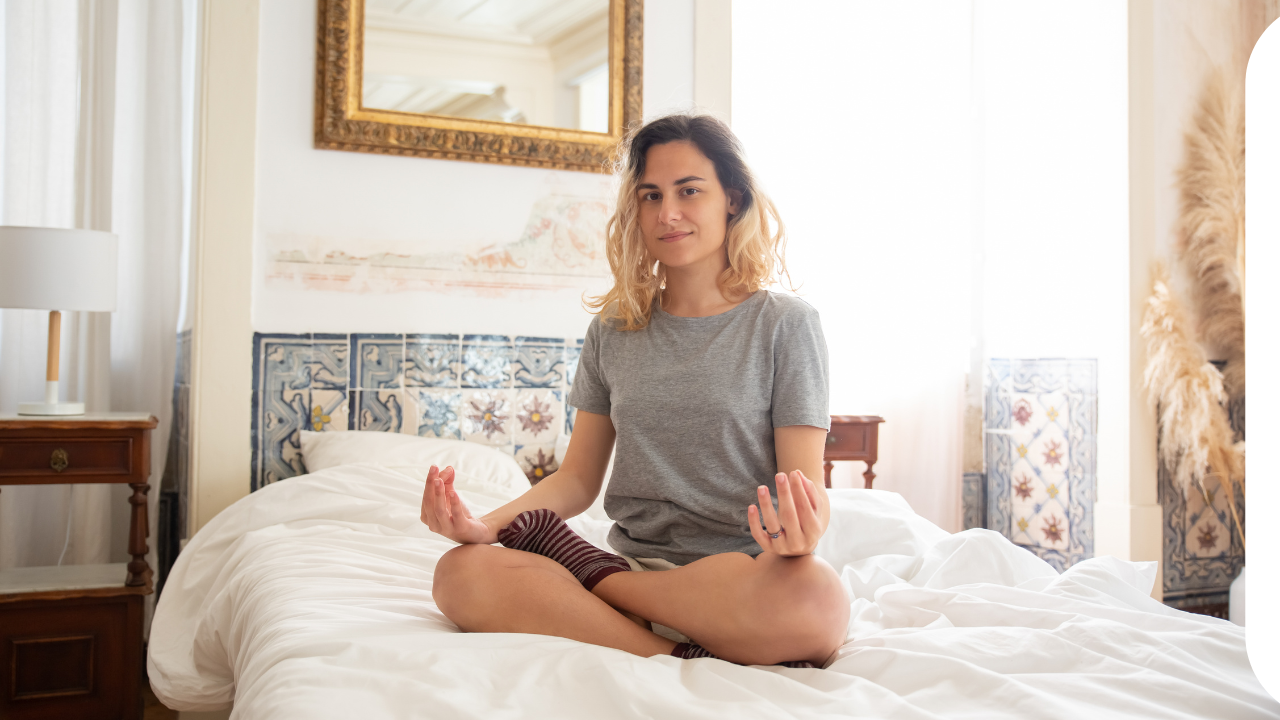Meditation is often seen as something reserved for monks, yogis, or spiritual gurus—but the truth is, it’s a simple and accessible practice that anyone can start. Whether you’re looking to reduce stress, improve focus, or simply feel more grounded, meditation is a powerful tool to bring calm and clarity to your life.
If you’ve ever thought, “I can’t meditate, my mind is too busy,” you’re not alone—and you’re exactly the kind of person meditation can help most. In this guide, we’ll walk through how to start meditating and how to make it part of your daily routine, even if you’re a complete beginner.
What Is Meditation?
Meditation is the practice of focusing your mind and eliminating distractions. It’s not about stopping thoughts altogether but about observing them without judgment and gently returning your attention to the present moment.
There are many types of meditation, but the most common forms include:
- Mindfulness Meditation: Observing your breath, thoughts, and feelings without reacting to them.
- Focused Attention: Concentrating on a single object, word, or sound (like a mantra).
- Loving-Kindness Meditation: Cultivating compassion for yourself and others.
- Body Scan: Moving your attention through different parts of the body.
The beauty of meditation is that there’s no “right” way—it’s about finding what works for you.
Benefits of Meditation
Scientific research has consistently shown the benefits of regular meditation practice:
- Reduces stress and anxiety
- Improves focus and concentration
- Enhances emotional regulation
- Promotes better sleep
- Increases self-awareness and patience
- Supports mental clarity and creativity
Even just a few minutes a day can yield noticeable improvements over time.
Common Misconceptions About Meditation
Before we begin, it’s helpful to clear up a few common myths:
- You don’t have to clear your mind completely. Thoughts will come and go—that’s normal.
- You don’t need hours of free time. Even 5 minutes can make a difference.
- You don’t need a quiet, perfect space. You can meditate anywhere, even in noisy environments with practice.
- You don’t need to sit cross-legged. A chair, bed, or couch is just fine.
How to Start Meditating in 5 Simple Steps
Step 1: Choose a Time and Place
Pick a time of day when you’re least likely to be interrupted—morning works well for many people. Find a quiet space where you feel comfortable. You don’t need candles or music unless that helps you relax.
Step 2: Set a Timer
Start with just 3 to 5 minutes. As you get more comfortable, increase to 10, 15, or even 20 minutes. Use apps like Insight Timer, Headspace, or Calm, or simply use your phone’s timer.
Step 3: Sit Comfortably
You don’t need a meditation cushion. Sit in a chair with your feet flat on the ground, or on a couch with your legs relaxed. Keep your back straight but not rigid, and rest your hands on your lap.
Step 4: Focus on Your Breath
Close your eyes and bring your attention to your breathing. Notice the air as it flows in and out of your nose or feel your chest rise and fall. If your mind wanders (and it will), gently bring it back to the breath without judgment.
Step 5: End with Awareness
When the timer goes off, take a few seconds to notice how you feel. Gently open your eyes, stretch a little, and continue with your day.
Tips for Making Meditation a Habit
Starting is easy—sticking with it is the real challenge. Here’s how to make meditation part of your routine:
- Attach it to an existing habit: Meditate right after brushing your teeth or before bed.
- Use reminders: Set a daily alarm or leave a sticky note where you’ll see it.
- Track your progress: Use a journal or app to record your sessions and feelings.
- Start small: Don’t aim for 30 minutes a day right away. Begin with a few minutes and grow naturally.
- Be patient: Meditation is a skill. You won’t become a master in a week—and that’s okay.
Troubleshooting Common Challenges
“My mind won’t stop racing.”
That’s completely normal. Meditation is about noticing the noise, not eliminating it.
“I forget to meditate.”
Pair it with an activity you do daily. Use visual or digital cues to remind you.
“I fall asleep while meditating.”
Try meditating in the morning, sitting up, or in a bright space.
“I don’t feel different.”
Meditation is a long-term investment. Subtle changes build over time—be consistent.
Final Thought: Meditation Is a Gift to Yourself
In a busy, distracted world, meditation is a rare opportunity to pause, breathe, and reconnect with your inner self. You don’t need to be perfect. You just need to show up, sit, and be willing to try.
Start today with a simple breath. That’s all it takes.

